News archive
On this page you can search for older news. Choose a topic, type of news or enter your own keyword to filter out news.
View compact

Ann Nordgren, Adjunct Professor at Karolinska Institutet, has in her position as coordinator of the working group predisposition within the Childhood Tumor Bank (BTB) - Genomic Medicine Sweden (GMS), working committee (AU) Childhood cancer, been awarded clinical project grant amounting to SEK 15.000.000 from the Swedish Childhood Cancer Fund.
News
The Swedish organisation Psykiatrifonden has just announced which projects will receive research funding by money earmarked for suicide preventative research donated by Suicide Zero. Lotfi Khemiri at Karolinska Institutet is responsible for one of the projects and is studying the connection between substance abuse and risk of suicide.
News

Hi Médoune Sarr, PhD-student at the Division of Neurogeriatrics. On February 28 you will defend your thesis ”A star is born: Development of NT* as a biotechnological tool based on the mechanism of pH dependent dimerization of the spidroin N-terminal domain”, what's the main focus of the thesis?
News
N.B. THE CONFERENSE WILL HELD ONLINE
On May 15-16, 2020, The European Conference on Rare Diseases & Orphan Products (ECRD) will be held at the Stockholm fair in Älvsjö. The conference brings together over 800 participants from more than 50 countries. Abstract deadline is February 10.
On May 15-16, 2020, The European Conference on Rare Diseases & Orphan Products (ECRD) will be held at the Stockholm fair in Älvsjö. The conference brings together over 800 participants from more than 50 countries. Abstract deadline is February 10.
News
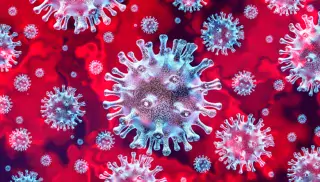
Researchers worldwide are trying to develop a vaccine and antiviral treatments against the new corona virus spreading in China. At Karolinska Institutet, virus researchers Ali Mirazimi and Matti Sällberg are working to develop a prototype vaccine against the virus. But vaccine development takes time, and it will likely take at least six to nine months before an application for clinical studies can be filed and another two to three years before a vaccine could be ready for the public.
News

Babies born with low birth weights are more likely to have poor cardiorespiratory fitness later in life than their normal-weight peers. That is according to a study by researchers at Karolinska Institutet in Sweden published in the journal JAHA. The findings underscore the importance of prevention strategies to reduce low birth weights even among those carried to at term delivery.
News

When Human Immunodeficiency Virus Type 1 (HIV-1) infects a cell, the virus often becomes invisible to both the immune system and drugs. Now research from Karolinska Institutet shows that the integrated virus mimics a specific chromatin structure that lets the virus sequence remain accessible while preventing production of new viruses.
News
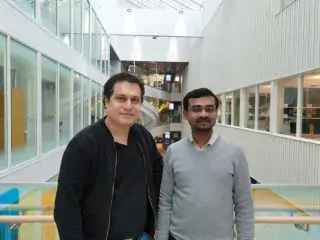
In a recent study, researchers from the Karolinska Institutet show that the estrogen receptor beta (ERß) affects nerve signals in the part of the brain that controls locomotor activity. The results highlight the importance of ERß and the female sex hormone estrogen in brain development and function, and that an imbalance of the hormone could contribute to neuropsychiatric disorders.
News

A clinical phase I study led by the Public Health Agency of Sweden and researchers from Karolinska Institutet shows that a new vaccine for pertussis (whooping cough) given as drops into the nose is more efficacious than the current vaccine. The results of the study are presented in The Journal of Clinical Investigation. The vaccine will now be evaluated in a larger phase II clinical trial.
News
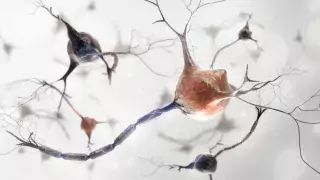
Researchers at Karolinska Institutet have mapped how different nerve cells in the brain area striatum process information to plan and execute our movements at just the right time and with the right vigour. The results, presented in the journal Cell Reports, show that different cell types in the striatum receive signals from completely different parts of the cerebral cortex and thus respond to different types of information.
News
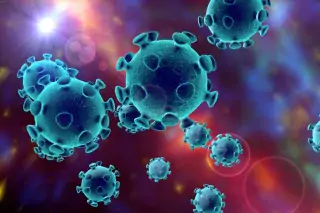
The new corona virus continues to spread despite significant measures taken by the authorities in China to stop the outbreak. However, this time the fast response coupled with increased knowledge about the nature of the virus means the world is better placed to handle the outbreak compared to 18 years ago when SARS caused widespread concern, says virus researcher Ali Mirazimi, adjunct professor at the Department of Laboratory Medicine at Karolinska Institutet.
News
Researchers from the Teixeira Lab in collaboration with the Ruas and Stevens Labs at Karolinska Institutet have identified that molecular weight, nuclear import rate as well as the width of the muscle fibers are the key factors behind the transport of proteins within muscle cells. The study is published in PNAS and provides engineering parameters for gene therapies in skeletal muscle.
News
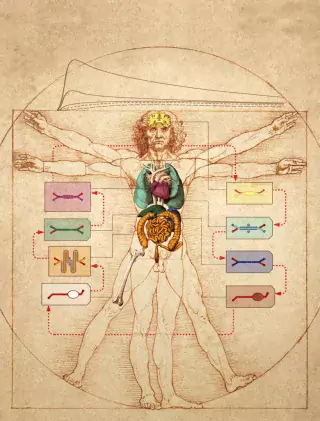
A multiple organ-on-chip platform developed by researchers at KTH Royal Institute of Technology, Karolinska Institutet and Harvard University could drastically accelerate drug testing. The technology, described today in Nature Biomedical Engineering, provides accurate predictions of drug effects prior to clinical testing.
News
Bo Runeson and his colleague Seena Fazel from University of Oxford has written a review article about the current state of research on suicide prevention. The article was published in New England Journal of Medicine.
News

A new digital tool that tailors specific questions based on a patient's medical history could improve the safety of diagnosis and effectiveness of care, according to a new study at Danderyd Hospital and Karolinska Institutet published in BMJ Open.
News

Researchers at Karolinska Institutet in Sweden have revealed a new principle of organisation which explains how locomotion is coordinated in vertebrates akin to an engine with three gears. The results are published in the scientific journal Neuron.
News
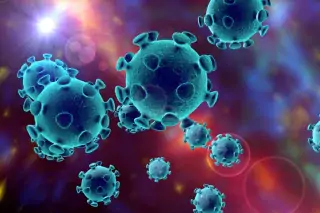
More than 200 people have died and thousands more have been sickened by the new corona virus spreading in China. A few cases have been confirmed outside China, and the World Health Organization is closely monitoring the situation. How worried about a new pandemic should we be? Virus researcher Ali Mirazimi, adjunct professor at the Department of Laboratory Medicine at Karolinska Institutet, gives us his perspective.
News
Two researchers at Karolinska Institutet have been awarded funds from the Sjöberg Foundation. The foundation promotes cancer research, and research on health and the environment.
News
After years of research on cell surface receptors called Frizzleds, researchers at Karolinska Institutet provide the proof-of-principle that these receptors are druggable by small molecules. The results, which are published in the scientific journal Nature Communications, open for new strategies to treat different types of cancer.
News
Abdominal obesity not only increases the risk for a first heart attack or stroke, but also the risk for recurrent atherosclerotic cardiovascular disease, according to a study by researchers at Karolinska Institutet published in the European Journal of Preventive Cardiology.
News

Endogenous proteins that play a vital part in allergies and parasitic infection can prevent the immune system from wrongly attacking the body and causing inflamed joints, a study from Karolinska Institutet published in the scientific journal PNAS reports. The researchers hope that the results will give rise to new drugs for rheumatoid arthritis.
News
UPDATE: Please note that the rest of the seminars in this series are cancelled.
News

A common and inexpensive drug may be used to counteract treatment resistance in patients with acute myeloid leukemia (AML), one of the most common forms of blood cancer. This is the conclusion of a study in mice and human blood cells performed at Karolinska Institutet and SciLifeLab and published in the medical journal EMBO Molecular Medicine. The researchers will now launch a clinical study to test the new combination treatment in patients.
News
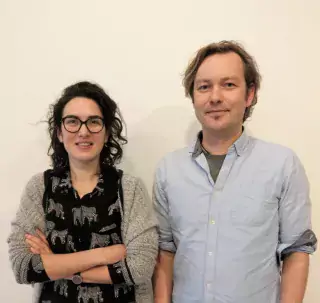
The transcription factor DAF-16/FOXO mediates a wide variety of aging-preventive responses by driving the expression of stress-resistance and longevity promoting genes. Ilke Sen and other members of the Riedel lab could show that transcriptional initiation at many DAF-16/FOXO target genes depends on dephosphorylation of SPT-5 by Protein Phosphatase 4.
News

KI researcher Emma Andersson receives Swedish Foundations' Starting Grant 2019 for research in developmental biology.
News
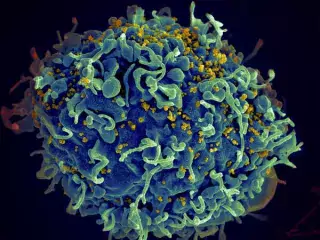
In a new study published in Nature Communications, researchers at Karolinska Institutet show that MAIT cells (mucosa-associated invariant T cells), part of the human immune system, respond with dynamic activity and reprogramming of gene expression during the initial phase of HIV infection. The study fills a knowledge gap, as previously there has been a lack of awareness of the function of MAIT cells during this particular phase.
News
Two new research programmes focusing on AI and bioelectronic medicine, for application in the areas of breast cancer and inflammatory disease, respectively, have been adopted at MedTechLabs. An interdisciplinary centre run by KTH, Karolinska Institutet and the Stockholm Region.
News
The post-doctoral programme for leading research, Pro Futura Scientia, provides promising young European researchers financing for independent research. The 15 participants of the 2019-2020 programme have also been offered a leadership programme, Leadership in Academia, given by Karolinska Institutet in collaboration with Riksbankens Jubileumsfond (the Swedish Foundation for Humanities and Social Sciences).
News
On Friday January 31, Yunzhang Wang will defend his thesis "DNA methylation and aging : a longitudinal study of old Swedish twins".
News
Congratulations Pawel Kozielewicz! You are the Highlighted Trainee Author for the January 2020 Issue of Molecular Pharmacology.
News

On 13-15 December, researchers from the three departments GPH, MTC and MBB at Karolinska Institutet, participated in the Joint Programming Initiative on Antimicrobial Resistance Hackathon: Using the digital world to fight antimicrobial resistance. A three-day event that seeks to produce innovative digital products or prototypes that can bring concrete solutions to address the issue of Antimicrobial Resistance.
News

Researchers at Karolinska Institutet and their colleagues in Germany, the USA and Finland have studied the safety of very long-term antipsychotic therapy for schizophrenia. According to the study, which is published in the scientific journal World Psychiatry, mortality was higher during periods when patients were not on medication than when they were.
News
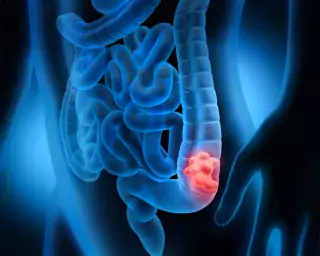
Patients with the inflammatory bowel disease ulcerative colitis have a higher risk of dying from colorectal cancer, despite modern therapy, even though the risk has declined in recent years. This is according to a new study published in the scientific journal The Lancet by a team of Swedish and Danish researchers.
News
A recent paper published in Science Advances by scientists at Karolinska Institutet in a large joint effort with Hungarian, Japanese, Swedish and American researchers demonstrates a previously unknown mechanism by which cells can protect proteins from irreparable damage by oxygen. Because this damage occurs in diseases such as cardiovascular, neurodegenerative conditions and cancer, the mechanism helps us to better understand these diseases.
News

Researchers at Karolinska Institutet have developed a method based on artificial intelligence for histopathological diagnosis and grading of prostate cancer. The AI-system has the potential to solve one of the bottlenecks in today’s prostate cancer histopathology by providing more accurate diagnosis and better treatment decisions. The study, presented in The Lancet Oncology, shows that the AI-system is as good at identifying and grading prostate cancer as world-leading uro-pathologists.
News
Annika Hanberg, IMM, Programme director for the ToxMaster programme, was awarded ”Mäster 2019” by the Student Union at KI Medicinska Föreningen at their Lucia ball on the 13 December 2019.
News
Arne Holmgren, Senior Professor at Karolinska Institutet, died on January 6, 2020, 79 years old. Dr. Holmgren was widely known as one of the groundbreaking scientists establishing the rapidly growing field of redox biology.
News
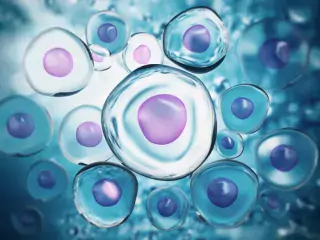
Using a trick involving detergent and mass spectrometry, a research group has been able to wash and weigh protein molecules to determine which lipids make the protein work. The findings may help design molecules that stick to individual membrane proteins and pave the way for the development of new drugs including antibiotics and cancer therapies. The study is published in Angewandte Chemie International Edition.
News

Researchers at Karolinska Institutet have come one step closer toward understanding how the part of our brain that is central for decision-making and the development of addiction is organized on a molecular level. In mouse models and with methods used for mapping cell types and brain tissue, the researchers were able to visualize the organization of different opioid-islands in striatum. Their spatiomolecular map, now in Cell Reports, may further our understanding of the brain’s reward-system.
News
Researchers at Karolinska Institutet have deciphered the diabetogenic role of a certain type of calcium channel in insulin-secreting beta cells. The researchers believe that blockade of these channels could be a potential new treatment strategy for diabetes. The study is published in the scientific journal PNAS.
News

Christina H. Opava summarized her career at KI in an entertaining talk prior to her retirement, led by Yvonne Enman, journalist and honorary doctor at KI.
News
Systembolagets Alkoholforskningsråd has awarded projects grants to four research projects at the Department of Global Public Health.
News
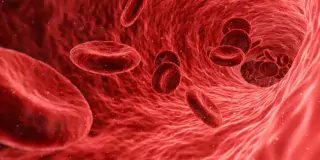
Researchers at SciLifeLab report in the journal Science that they have created a detailed blood atlas of the proteins in human immune cells. The open-access database offers medical researchers an unprecedented resource in the search for treatments for diseases.
News

Glutamine could help people with obesity reduce inflammation of fat tissue and reduce fat mass, according to a new study at Karolinska Institutet in Sweden and the University of Oxford in the U.K. The researchers also show how glutamine levels can alter gene expression in several different cell types. However, more research is needed before glutamine supplementation may be recommended as a treatment for obesity. The study is published in the journal Cell Metabolism.
News
Congratulations to Associate professor Susanna Brighenti at CIM who receives research grants for her group´s studies on new concepts for host-directed therapy in tuberculosis.
News
Researchers at Karolinska Institutet, together with colleagues from the EU-funded project HUMAN, recently published a study on a new animal model for studies of human lipoprotein metabolism and pharmacodynamics. The study is a result of the EU project HUMAN using a new animal model and new technologies to study aging and cardiometabolic diseases.
News
She receives the grant for ”New diagnostic tools and treatment for Alzheimer's disease, traumatic brain injury and small vascular disease” and it is distributed over three years.
News
Cognitive Behavioural Therapy (CBT) for patients with social anxiety not only helps to reduce anxiety levels but also seems to protect against accelerated cellular ageing, a study involving researchers at Karolinska Institutet published in the journal Translational Psychiatry reports.
News

The search for a cure to AIDS has partly focused on ways to eradicate infected cells. Now, new research from Karolinska Institutet in Sweden and the University of Pennsylvania in the U.S. shows that this approach may not be necessary for a functional cure. In a study focusing on a subset of HIV-positive individuals who can live with the virus without needing treatment, the researchers found that these people’s lymphocytes suppress the virus but do not kill off infected cells.
News
Two KI researchers receive research project grant for international collaboration within rare diseases (EJP Rare diseases) from the Swedish Research Council.
News
